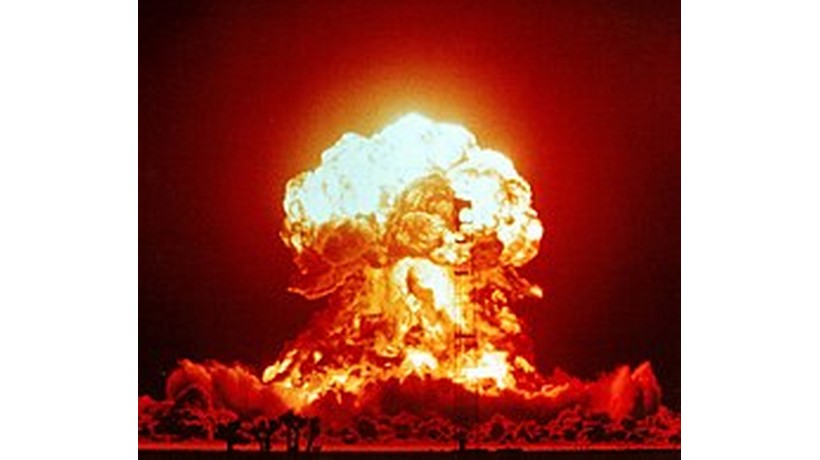The International Day Against Nuclear Tests, celebrated annually on August 29th, is a date that has important symbolic weight in the fight for world peace and the preservation of humanity. Established by the United Nations General Assembly in 2009, the day was chosen in memory of the closure of the nuclear test site in Semipalatinsk, Kazakhstan, in 1991. This event is an important milestone in the history of demilitarization and symbolizes a hope for peace free from nuclear threats. However, the reality of nuclear proliferation and the continued existence of atomic arsenals raise constant concerns and constitute a threat today.
Since the beginning of the nuclear age, with the testing of the atomic bomb by the United States in 1945, the world has lived under the shadow of an existential threat. Nuclear tests carried out by different nuclear powers have had devastating consequences. The Soviet Union carried out more than 450 nuclear tests in Semipalatinsk, Kazakhstan, between 1949 and 1989. These explosions caused irreparable environmental damage and seriously affected the health of local populations, who suffered chronic diseases, congenital malformations and an alarming increase in rates of cancer. . Likewise, the United States carried out nuclear tests in the Marshall Islands, in the Pacific Ocean, between 1946 and 1958, exposing the inhabitants of these islands to the harmful effects of radiation and causing the forced displacement of entire communities. Additionally, France carried out 193 nuclear tests at Mururoa Atoll in French Polynesia between 1966 and 1996, causing radioactive contamination and damage to the marine environment. Progress in the fight against nuclear testing is undeniable. The Comprehensive Nuclear-Test-Ban Treaty (CTBT), adopted in 1996, was a crucial step in the attempt to contain nuclear proliferation. The treaty prohibits all nuclear explosions, whether for military or civilian purposes. However, despite having been signed by 185 countries and ratified by 170, the CTBT has not yet entered into force due to the lack of ratification by some key countries, such as the United States, China, India, Pakistan, Israel and North Korea. This impasse is a clear setback, as it demonstrates the reluctance of certain nations to renounce their destructive power in the name of global peace.
The main countries that carried out nuclear tests after 1996 are:
1. India: In May 1998, India carried out a series of nuclear tests known as “Shakti” in the Pokhran desert. These tests were condemned internationally, especially because the country did not sign the CTBT.
2. Pakistan: Just weeks after India’s tests, Pakistan responded with its own nuclear tests in May 1998 in Balochistan province. Like India, Pakistan has also not signed the CTBT.
3. North Korea: carried out a series of nuclear tests, the first of which took place in October 2006, followed by other tests in 2009, 2013, 2016 and 2017. These tests were strongly condemned by the international community and led to. severe sanctions against that country
We, humanists, denounce that nuclear tests continue to be carried out. These tests represent not only an affront to human rights, but also an ethical violation of respect for life and the integrity of the planet.
In addition to diplomatic challenges, the arms industry and economic interests associated with the development of nuclear technologies represent significant barriers to the total abolition of testing. The nuclear industry, both military and civilian, is seen as a symbol of power and prestige by many nations. To overcome these obstacles, a stronger global movement is needed, involving not only governments but also civil society, pushing for complete disarmament and the use of these resources for sustainable human development.
The setbacks, therefore, are visible not only in the refusal of some countries to ratify treaties, but also in the persistence of the war mentality and the arms race. The only way to guarantee world peace and security is through total demilitarization and the total rejection of nuclear weapons. The world must go beyond the logic of destructive power and embrace a new ethic, based on solidarity, respect for life and global cooperation.
The Humanists hope that this “International Day Against Nuclear Tests” will serve as a permanent reminder of the urgent need to continue the fight for the abolition of nuclear weapons and the promotion of a culture of peace. This day is not just a date for reflection, but a call to action. The search for a world without nuclear weapons should not be seen as an unattainable utopia, but as a morally imperative objective, which requires the commitment of all sectors of society. Only through a joint effort will it be possible to overcome the challenges that still lie ahead and build a future where peace prevails over war and life is valued above any form of destruction.






